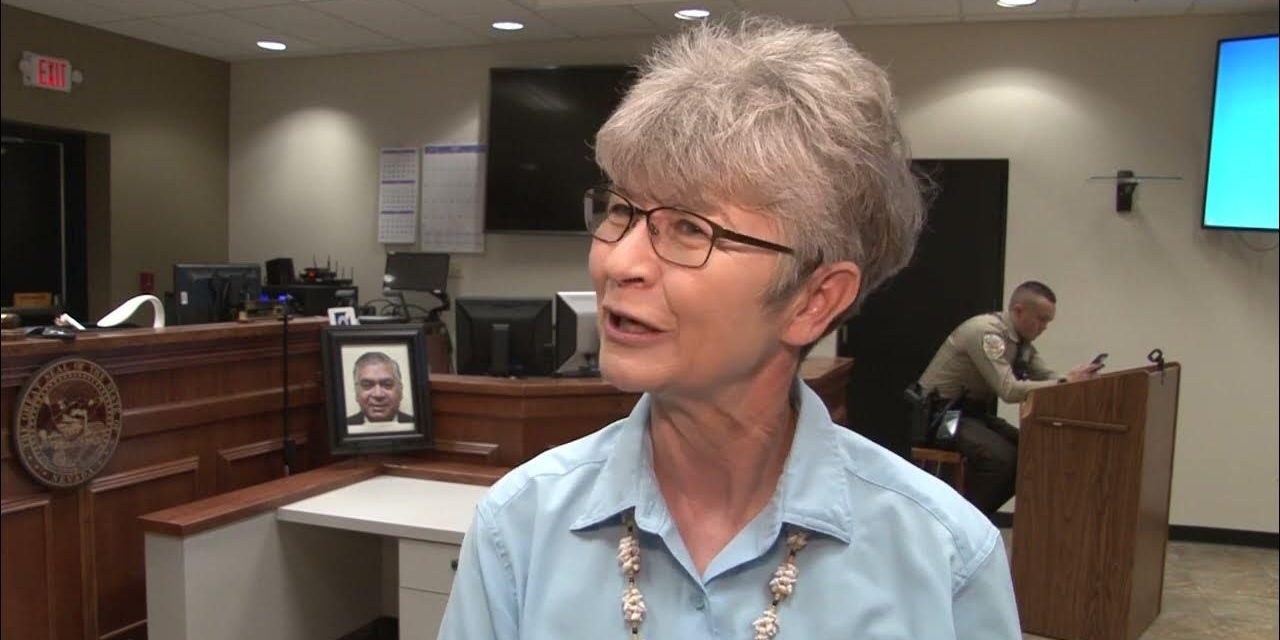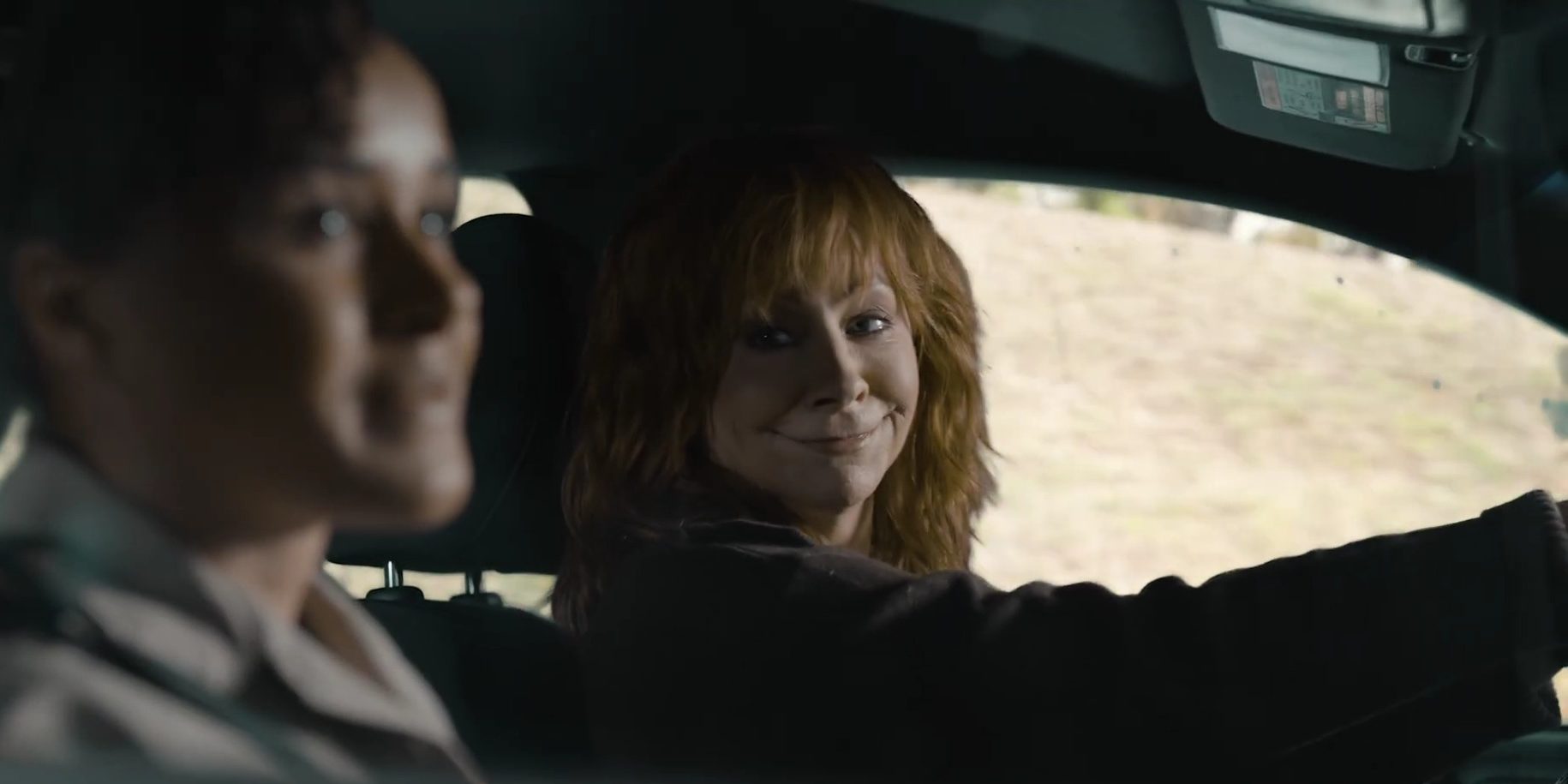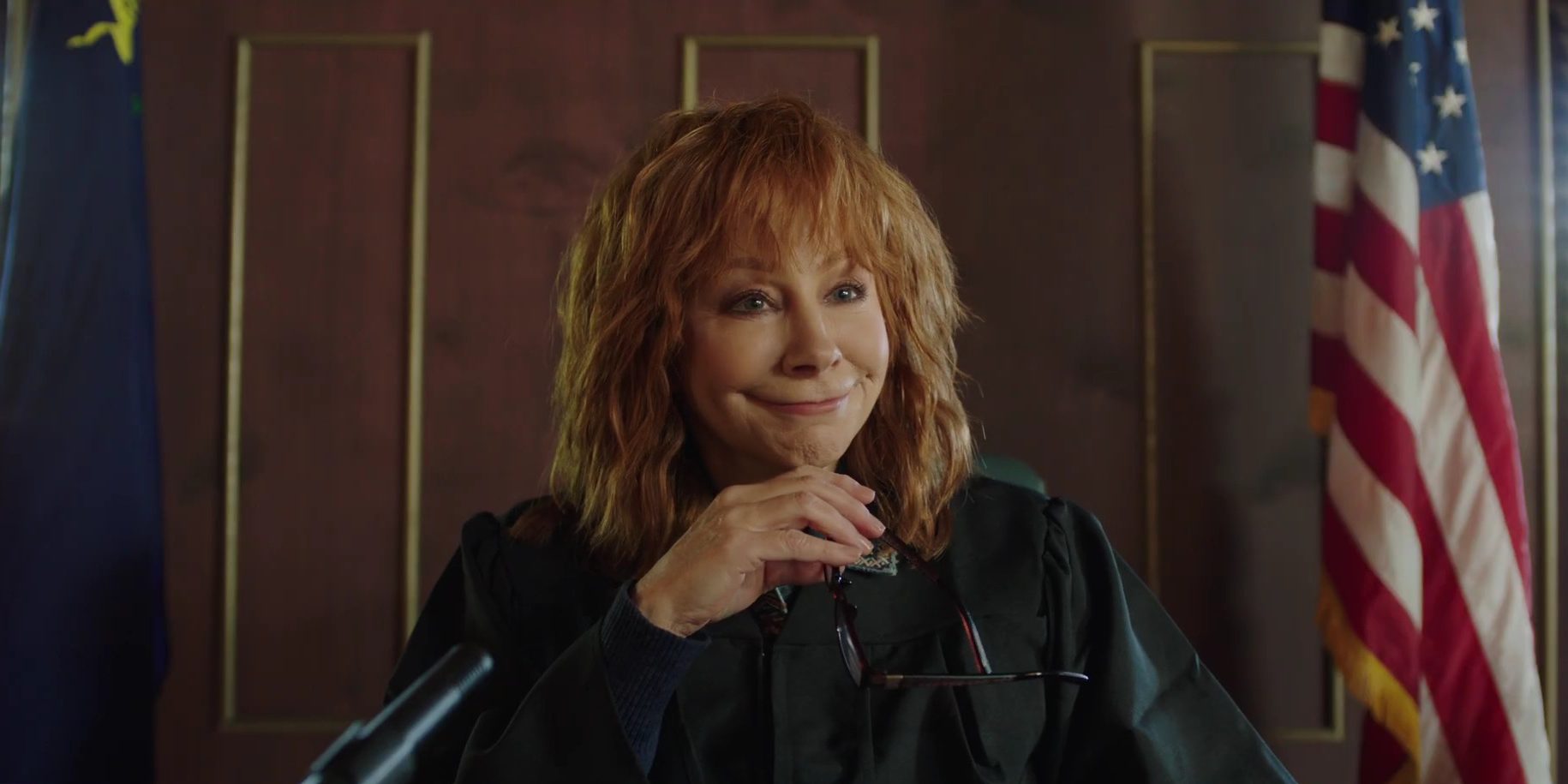Lifetime’s ‘Reba McEntire’s The Hammer’ is a legal drama film that centers on a newly appointed circuit judge for the 5th District of Nevada, named Kim Wheeler, played by Reba McEntire. In the Jeff Beesley directorial, the judge is committed to upholding justice, especially when her own sister becomes the prime suspect in the mysterious death of the judge’s predecessor. The protagonist embodies a steadfast commitment to justice, even in the face of corruption, pressure, and personal threats. In the thriller mystery movie, Kim’s pursuit of fairness and truth drives the narrative, underscoring the difficulty of upholding ethical standards within legal systems often swayed by power and influence. SPOILERS AHEAD.
Reba McEntire’s The Hammer is Partially Based on the Life of a Real Judge
The character of Kim Wheeler in the film draws inspiration from Kimberly A. Wanker, a real-life veteran traveling circuit judge in Nevada’s Fifth Judicial District. Appointed in May 2011 by Governor Brian Sandoval, Judge Wanker made history as Nevada’s first rural female district judge. Her jurisdiction covered extensive rural regions, including Nye and Esmeralda counties. Based out of Pahrump, she rotated monthly between the smaller courthouses in Tonopah and Goldfield. Kimberly Wanker hosted a special screening of the movie at Valley Electric Association’s Conference Center, drawing a packed house around the time of its release.

Though parts of the protagonist’s story in the film have been dramatized by the writers, Sanford Golden and Karen Wyscarver, to suit the narrative, the resemblance to the real-life inspiration is evident. As reported by the Pahrump Valley Times, Wanker explained that the movie is essentially fictional and that the writers shadowed her in 2014 during her travel rotation to write the movie. She was unaware of the project until January 2022, when she was informed that Lifetime Channel had acquired the film.
Kimberly Wanker’s Life Helped Shape the Character of Kim Wheeler
Kimberly Wanker earned the nickname “The Hammer” due to her formidable presence and unyielding demeanor in the courtroom. This title, which she proudly embraces, reflects her fierce, gritty approach and her ability to confront any challenge head-on during legal proceedings. In the film, the lead character, Kim Wheeler, embodies the persona of the real-life judge in a strikingly similar fashion. The distinction between reel and real becomes slightly invisible because of the authentic writing of the character and Reba McEntire’s performance. In the film, Kim Wheeler’s induction into Nevada’s Fifth Judicial Circuit represents a substantial disruption to the established justice system. The cinematic portrayal depicts her operating across two courthouses, whereas Wanker, the real-life counterpart, presided over three, encompassing an expansive territory of 25,000 square miles.

Wanker was available to answer McEntire’s questions through phone calls and text messages during the filming. Inspired by her discussions with the judge, the actress urged the writers to incorporate additional real-life stories into the screenplay. In an interview with Yahoo Entertainment, the lead actress said, “The Hammer is a made-up story based on a true-life character Kim Wanker.” The movie shows the protagonist living in the back of her truck, traveling from one courthouse to the next. Interestingly, Kimberly also lived in her truck for a while when she had to keep moving as a traveling circuit judge. Wanker also provided Reba with a book detailing the operations of the three courthouses under her jurisdiction. The film features the protagonist packing a gun and also, on occasion, firing it for her own defense.
In real life, Wanker prioritizes self-defense due to threats from those who disagree with her verdicts and sentences. She carries a 9mm, drives an unmarked car, and is typically accompanied by a bailiff. This adds to the authenticity of the storyline. In a Television Critics Association Zoom panel, Reba McEntire stated, “I get to do a lot of different things that I found out that Kim Wanker actually did in her court.” She went on to say that the judge was a practical and sensible person and that the judge liked to sleep under the stars. In a humorous scene, Kim Wheeler is stopped by a police deputy for speeding, mirroring an actual event involving Kimberley. In 2011, shortly after becoming the 5th District Judge, Kimberley was also stopped and questioned about her credentials.
The Movie Explores the Social Reality of Rural Nevada
The film portrays the challenges of being a woman of power in a male-dominated field. The lead character faces criticism from her male colleagues about her ability to run a courtroom and is told that rural Nevada is a tough place in the Wild West, and not a place for a woman. This brings reality closer to the film’s narrative due to the challenges faced by women in the legal field generally, and also the specific example of Kimberly Wanker. The film also delves into the intricacies of rural life. A central conflict in the movie concerns a solar farm constructed near Tonopah.

Kim Wheeler’s predecessor is shown to have had significant objections due to the environmental impact of such a development on the desert. This issue is not entirely fabricated for the sake of cinema. In reality, Nevada has a history of disputes over renewable energy development. For years, locals have grappled with the implications of a greener future, which inevitably disrupts desert habitats and directly affects rural communities. The film starts with a scene in a brothel, which sets the tone of the narrative. There are scenes where we see slot machines placed in hotel lobbies.
In reality, brothels play a major role in the rural areas of Nevada, and slot machines are even present in commercial places like grocery stores and pharmacies. The narrative portrays the legacy of the real-life judge in a close-to-accurate manner. Although Wanker’s initial presence in the courthouse may have intimidated some, many respect her for the transformative impact she had on the 5th District. She re-established the law as something to be honored rather than merely contested. The cultural realities of the state have been portrayed authentically by the film, adding depth to its appeal.
Read More: Is Lifetime’s The Bad Seed Based on a True Story?


